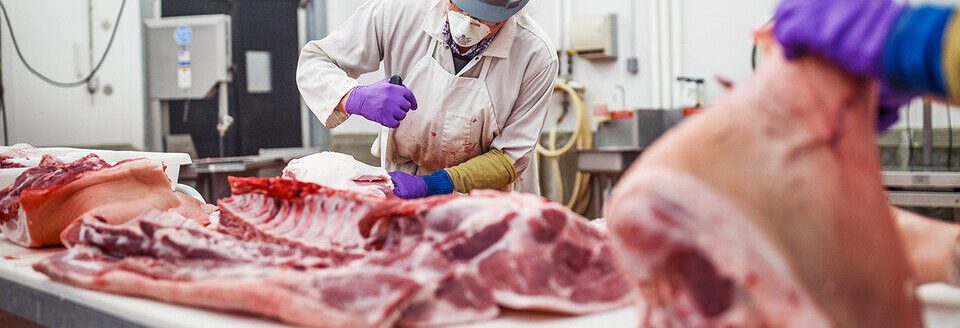The Artisanal Butchery Task Force, led by Iowa Secretary of Agriculture Mike Naig, has released its final report to the legislature detailing a plan to help address workforce challenges at Iowa meat lockers.
“Like many businesses, lockers and community meat processors are facing significant workforce shortages which have only been compounded since the COVID-19 pandemic began in 2020,” said Naig. “This labor shortage comes at a time when meat processors are experiencing increased demand for the high-quality products and services they offer at a time when supply chains are strained.”
The task force, created during the 2021 legislative session, was charged with exploring the feasibility of establishing an artisanal butchery program at a community college or at a regent institution. The task force was to consider several aspects of a potential program, including staffing and equipment requirements, potential enrollment numbers, overall employment outlook for graduates, apprenticeship and internship opportunities, program costs, curriculum, and regulatory and legal requirements.
Following three meetings over the fall of 2021 and stakeholder outreach, the task force recommends the creation of a one-year artisanal butchery certificate program offered through Iowa’s community college system. The program would include a combination of both classroom education and first-hand, work-based learning opportunities provided directly by local meat lockers and processors. Additionally, community colleges are encouraged to leverage programs and services offered at the Iowa State University Meat Lab to provide students with even more opportunities.
In addition to the educational charge, the task force also recommends several other measures to help address workforce and regulatory challenges that lockers face, including the following:
• Establish a tool kit for meat processing businesses to find training programs and resources;
• Create a talent pipeline by generating industry interest at the high school level;
• Explore opportunities to reduce regulatory hurdles; and
• Help lockers and processors add value to their products.
“I want to thank the members of the task force for their hard work over the last several months. Each one of them brought their experiences and expertise to the table and helped shape these recommendations,” added Naig. “I am confident that we have provided a roadmap to ease some of the workforce strains that the industry is facing and fill the gaps we currently have in Iowa’s educational and job training offerings.”
The Artisanal Butchery Task Force included the following members: Chairman Naig, Iowa Secretary of Agriculture; Jerry Roorda, Iowa Meat Processors Association and In’t Veld’s Meat Market; Ty Gustafson, Iowa Meat Processors Association and Story City Locker; Baili Maurer, Edgewood Locker; Dan Julin, Arcadia Meats; Kent Wiese, Amend Packing Company; Ned Skoglund, Skoglund Meats; Jeff Cook, Fareway Stores; Terry Houser, Iowa State University Meat Lab; Dave Grunklee, Hawkeye Community College; John Andres, Iowa Culinary Institute at DMACC; Laura Cunningham, SkyView Farms, representing Iowa Cattlemen’s Association; Steve Kerns, Farmer, representing Iowa Pork Producers Association; Fred Long, Iowa Conservation Alliance; Kathryn Polking, Iowa Department of Agriculture and Land Stewardship Meat and Poultry Inspection Bureau; Kathy Leggett, Future Ready Iowa; Brad Frisvold, Iowa Economic Development Authority; and Jake Swanson, governor’s office.
To read the task force’s full report go to https://iowaagriculture.gov/sites/default/files/2022/ArtisanalButcheryTaskForceReport.pdf.




